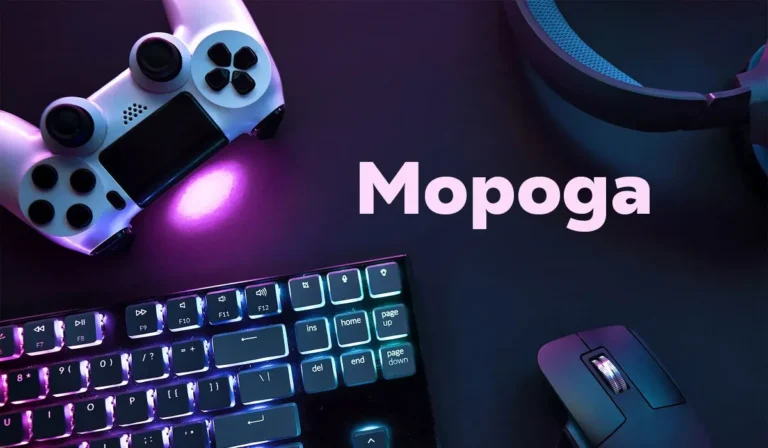In the ever-evolving landscape of the internet, countless websites, platforms, and online games have flickered into existence, enjoyed a moment in the sun, and then faded into digital obscurity. For those who frequented certain online spaces in the late 2000s and early 2010s, the name Mopoga might trigger a wave of nostalgia. For everyone else, it’s a cryptic term lost to time. So, what was Mopoga?
This article delves into the history and legacy of Mopoga, exploring its role as a portal to a vibrant world of browser-based gaming and social interaction.
What Was Mopoga? The Gateway to Adventure
At its core, Mopoga was a popular online gaming website and community portal that peaked in popularity between roughly 2008 and 2014. It was not a single game, but rather a hub—a digital arcade that aggregated thousands of free-to-play Flash and HTML games.
The platform was particularly renowned for hosting and promoting a specific genre of game that would become its defining feature: the role-playing game (RPG). For a generation of gamers, Mopoga was the go-to destination for immersive, story-driven browser experiences.
The Heart of Mopoga: A Haven for RPG Enthusiasts
While you could find puzzle games, shooters, and platformers on Mopoga, its soul resided in its extensive RPG section. The site was a launchpad for several iconic browser-based RPGs that developed cult followings. The most famous of these was undoubtedly “Fantasy Online.”
- Fantasy Online: This was Mopoga’s flagship title for a time. It was a 2D MMORPG (Massively Multiplayer Online Role-Playing Game) that allowed players to create a character, choose a class, and embark on quests in a persistent online world. It featured classic RPG elements like leveling up, acquiring loot, battling monsters, and interacting with other players in real-time. For many, it was their first taste of an MMO experience, all within a web browser.
Beyond its headline titles, Mopoga hosted thousands of other RPGs, from epic, multi-part adventures to shorter, experimental indie games. It was a democratizing force, giving small developers a platform to share their creations with a massive audience.
More Than Just Games: The Social Fabric
Mopoga was more than a mere game directory; it was a social network for gamers. The platform featured robust community features that allowed users to:
- Create Profiles: Users could build their own profiles, showcasing their favorite games, achievements, and avatars.
- Connect with Friends: There was a friends list and messaging system, allowing players to connect and coordinate gaming sessions.
- Join Groups and Forums: Players could discuss strategies, share fan art, and form clans or guilds for their favorite games.
- Compete on Leaderboards: Many games were integrated with site-wide leaderboards, fostering a healthy sense of competition.
This social layer transformed Mopoga from a passive gaming site into an active, vibrant community where friendships were forged over shared digital adventures.
The Decline and Legacy: Why Did Mopoga Fade Away?
The fall of Mopoga can be attributed to several seismic shifts in the tech and gaming industries:
- The Death of Adobe Flash: The single biggest factor was the phasing out of Adobe Flash. As major browsers stopped supporting Flash for security and performance reasons, the vast library of games that formed Mopoga’s backbone simply stopped working. The website could not survive this technological extinction event.
- The Rise of Mobile Gaming: The early 2010s saw an explosion in smartphone ownership. Games on dedicated app stores like iOS and Android offered more polished and convenient experiences, drawing players away from browser-based platforms.
- The Dominance of Major Platforms: Social networks like Facebook began hosting their own games (e.g., FarmVille), and gaming platforms like Steam became the dominant destination for PC gamers. Mopoga couldn’t compete with the resources and reach of these tech giants.
- Evolution of MMOs: As technology advanced, browser-based MMOs like “Fantasy Online” were eclipsed by more complex and visually stunning downloadable MMOs like World of Warcraft and Guild Wars 2.
Today, the original Mopoga website is defunct. Visiting its old domain likely leads to an error page or an unrelated site.
The Nostalgic Echo
For those who experienced it, Mopoga represents a specific, fondly remembered era of the internet. It was a time before the hyper-commercialization of gaming, when a simple website could be a gateway to countless worlds and a thriving community. It was the birthplace of formative gaming experiences and digital friendships.
While the platform itself is gone, its spirit lives on in modern web game portals like CrazyGames and Poki, and in the memories of a generation who learned that the greatest adventures were just a browser tab away.


